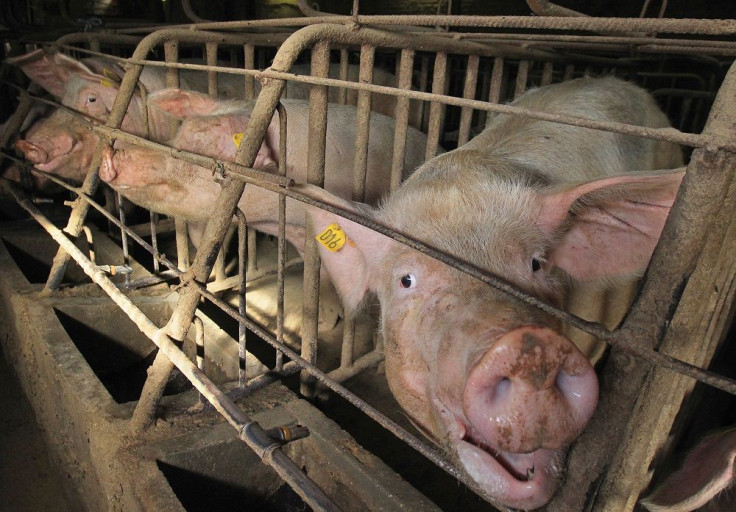Chimeras: UC Davis grows human pancreas in pig

Following reports that some laboratories in the US are growing chimeras, or half-human, half-animal embryos, University of California Davis (UC Davis) scientists say the chimeras behave like normal pigs. The chimeras look like regular sow, except one of its organs is made of human cells.
BBC reports that a pregnant sow is carrying human-pig chimera embryos raised to harvest human pancreas. The research targets to overcome global shortage of transplant organs.
The British broadcaster provides more details in the research which it would broadcast soon over BBC One in the report titled "Medicine's Big Breakthrough: Editing Your Genes." The medical breakthrough, using gene editing, allows scientists more control over evolution and genetic changes to be forced through species.
The creation of embryonic chimeras has two stages. The first stage uses the CRISPR gene editing technique to remove the DNA from a newly fertilised pig embryo to enable the foetus to grow a pancreas. The process creates a genetic void that would lead to the injection of human-induced pluripotent (iPS) stem cells directly into the embryo.
Scientists got the iPS from adult cells and dialed it back to become stem cells which have the capability to develop into any body tissue. “Our hope is that this pig embryo will develop normally but the pancreas will be made exclusively out of human cells and could be compatible with a patient for transplantation,” BBC quotes Pablo Ross, reproductive biologist of UC Davis.
A previous attempt without first creating the genetic niche resulted in human cells in various parts of the developing foetus struggling to compete with the pig’s cells. Ross says the team hopes the human cells would be more successful in creating pancreas like that of humans, following their deletion of a key gene.
It would be the first time that researchers would allow the foetuses to be born, although other teams in the US, such as those at the University of Minnesota, have created human-pig chimeric embryos that were terminated after 14 days. Pigs are ideal biological incubators to grow human organs, says Walter Low, professor in the university’s Department of Neurosurgery.
Low adds that besides pancreas, pigs have the potential to create human hearts, livers, kidneys, lungs and corneas. iPS cells would be taken from a patient who needs the transplant which is then injected into a pig embryo after the key genes are deleted to create the required organ. “The organ would be an exact genetic copy of your live but a much younger and healthier version and you would not need to take immunosuppressive drugs which carry side-effects,” the professor explains.




















